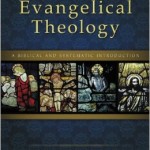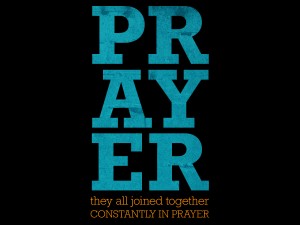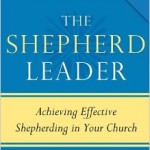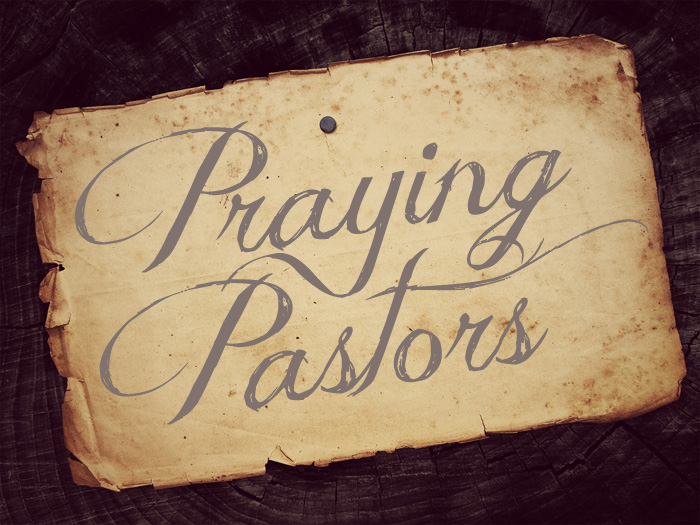 Every few weeks I try to write a “Pastoral Postcard,” a post that aims to encourage pastors in the work of ministry. I take one verse of Scripture and apply it to the blessings and afflictions every gospel minister experiences. The postcards originate from a time when I was preaching through 1 Timothy while reading Thomas Boston’s The Art of Man-Fishing. As a young pastor myself, I tried to channel my inner Boston and write short-ish notes to encourage my labor. Hopefully they can be some encouragement to you.
Every few weeks I try to write a “Pastoral Postcard,” a post that aims to encourage pastors in the work of ministry. I take one verse of Scripture and apply it to the blessings and afflictions every gospel minister experiences. The postcards originate from a time when I was preaching through 1 Timothy while reading Thomas Boston’s The Art of Man-Fishing. As a young pastor myself, I tried to channel my inner Boston and write short-ish notes to encourage my labor. Hopefully they can be some encouragement to you.
“Therefore an overseer must be above reproach, the husband of one wife, sober-minded, self-controlled, respectable.” – 1 Timothy 3:2
Pastor, you are called to sobriety and respectability; in other words, you are to be a man of winsome watchfulness.
WATCHING YOUR WAY
Old King James likes to think of a “sober-minded” man as a “vigilant” man, one marked by diligence in keeping the heart. The apostle encouraged young Timothy to “keep on yourself and the teaching.” Thus, a sober-minded and self-controlled man is one vigilantly disciplined to watch his life and doctrine.
First, watch your life. Like a captain who constantly stands on his ship’s bridge to stay the course, so too must you stand on the bridge of your soul and steady it within the paths of righteousness. Winds and waves from the world will whip around you, but with eyes fixed above you must steer toward the eternal waters. Make not mistake, this is not as easy. The Serpent is always scheming to divert your gaze from the Savior, to fix your attention on all that is in the world – the desires of flesh, eyes, and pride of life. Should he not be successful in these areas, the Deceitful Devil will encourage you to overly-avid examination of the heart. He knows that the apostle requires you to examine your heart to see if you are in the faith, so he will work for your gaze to never lift off yourself. Such morbid introspection will cripple your progress in life, for the very progress you are to make comes from looking outside yourself. The Colossians were told, “Set your minds on things above,” for that is where Christ is, and He is “your life.” Disciplined looking at your life thus means disciplined looking unto Christ. The young Scotsman knew this all too well, which is why he said, “For one look at self we ought to take ten looks at Christ.” Remember this principle as you stand on your bridge and fix your eyes on the Captain.
Christ is your life, so place Him ever before your eyes, for only then will you really be watching you life with sobriety and self-control.
Second, watch your doctrine. The Savior equipped you with knowledge, gifting, and ability so that you might feed His flock. This means, ordinarily, you will be more advanced in truth than almost every one of your sheep. This is good and pleasing in the sight of God, for mature pastors are necessary for mature sheep. But don’t forget that this is also good and pleasing in the Serpent’s sight because it is a glorious vehicle for complacency in truth. If he can keep you from being challenged in truth, he will then succeed in making you complacent in truth. He will tempt you to rest on your laurels of knowledge and eschew any sort of engagement that might fluster your presuppositions. Unchallenged pastors quickly become complacent pastors and complacent pastors are ripe for the Raging Lion. Slay his roaring subtlety by daily swimming in the deep things of God. Kill your flesh which desires more to study the fleeting vapors of this world instead of the Eternal One. It is only in Him that the real treasures of knowledge are found, thus it is Him that you must encounter and experience.
So just as watching your life means watching Christ, so too does watching your doctrine ultimately mean watching Christ, for He is both life and truth.
You must understand two further things about this watch. First, it cannot be done in isolation. The Serpent will tempt you to wage this watchful war alone in a foxhole. Yet, the truth is that you fight on a victorious hill, shoulder-to-shoulder with other Christians in strongest army the cosmos has ever seen. Your Christian brothers and sisters will help you see through sin’s deception and the Worm’s wiles, steering your on the paths of life and keeping you in the ways of truth. Dear pastor, watch with witnesses. Second, know that your unique soul will want to give unbalanced attention to one of these two areas. The Worm knows this as well, and so he might currently scheme for you to only watch your life, but not your doctrine. If so you will be a ship sailing with no anchor. Or he might tempt you to only watch your doctrine and not your life. Such a watch means the soul’s ship has an anchor, but no sails.
Fight against any temptation to overly focus on one side and instead fix your gaze on Christ, who is life and truth.
WINSOMENESS IS THE WAY
Your world celebrates freedom from constraint and discipline. Yet, this world is nevertheless drawn to a man sober-minded and self-controlled. Why? Because order and discipline inevitably bring respectability. And respectability is little more than an appealing character; respectability sings and shines; respectability is winsome. So a respectable life is a winsomely appealing life, and is that not what a pastor’s life much be? One that is exemplary and worthy exemplifying?
Watching your life and doctrine fuels a winsome witness to Christ, the One who is your way, life, and truth. Such testimony comes from a man sober-minded, self-controlled, and respectable.











